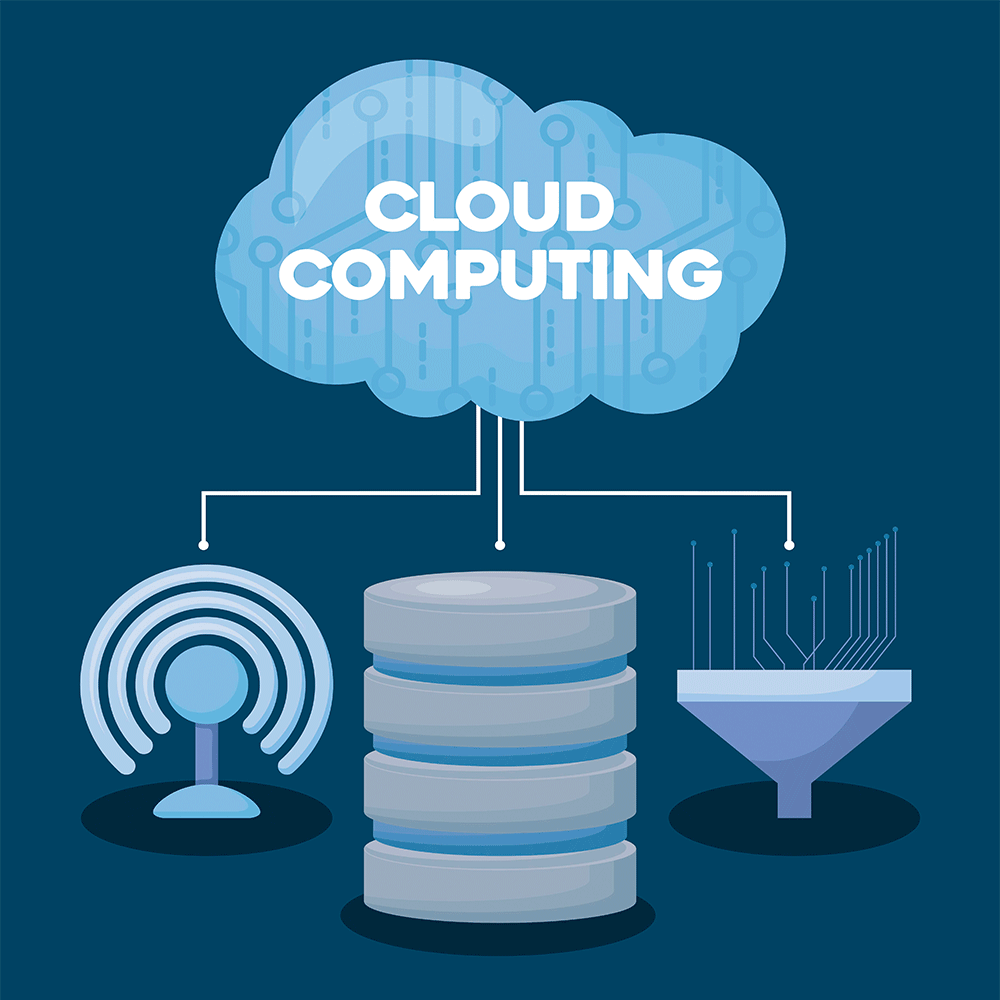Cloud AI in Retail: Personalization, Inventory, and Customer Experience

The use of artificial intelligence in the cloud in retail: the new way to do business in the 21st century
Since the invention of the barcode, the retail industry has seen more changes than it has in the past. Because clients are unpredictable, global supply chains are difficult, and people want products right now, modern merchants need to go beyond standard analytics in order to be successful. The solution is to use cloud-based artificial intelligence in retail in a strategic manner.
Using artificial intelligence that is hosted on the cloud is no longer a pipe dream; it is the technology that will propel the next generation of businesses. By transferring their artificial intelligence processing power, data storage, and machine learning models to the cloud, retailers have the ability to address the most pressing issues facing the retail business, such as the personalized digital shelf and the efficient warehouse floor. They now have the speed, scalability, and processing power that they need as a result of this.
Retail CEOs who want to be at the forefront of digital transformation in their shops should follow the advice included in this guide. We are going to break down the hard elements, examine the primary use cases, and devise a clear strategy for how to utilize cloud-based AI solutions in order to master AI retail customisation, enhance retail inventory efficiency, and give consumers an AI-driven experience that is unparalleled in comparison to anything else.
1. For modern retail, personalization is the most important growth factor.

When it comes to an industry that is very competitive, generic experiences are a certain way to become no longer relevant. It is important for brands to be aware of what their consumers desire, and they should also be able to make educated guesses about what their customers need. When it comes to retail personalization, artificial intelligence truly excels, especially when it goes beyond basic segmented mailings.
Cloud artificial intelligence enables organizations to get a comprehensive understanding of their consumers by merging a wide variety of data sets, including transaction history, browser behavior, social media sentiment, data from loyalty programs, and real-time location data for each client.
Applying Predictive Analytics to Targeting with Extreme Specificity
The ability to implement current personalization is made feasible by retail predictive analytics. There is a high degree of accuracy in the predictions that cloud AI algorithms make about how individuals will behave in the future by looking at patterns from the past.
These are some of the most significant applications:
Next-Best-Offer (NGO): A client is provided with the specific product that they are most likely to purchase in the future via the use of recommendations. These recommendations are not just based on what the client has purchased in the past; rather, they take into account how other members of their group behave, seasonal trends, and how they interact with the screen in real time.
Dynamic Pricing AI: Refers to the process of adjusting the prices of items in real time based on factors such as the prices of rivals, the demand in the local market, the inventory levels, and the degree to which each customer is price sensitive. This is fundamental to driving massive revenue growth.
Predictive Churn Detection: Finding consumers who are likely to migrate to a competitor is what is meant by the term "predictive churn detection." The artificial intelligence will send you personalized offers or engagement attempts after it has determined who you are. These things are designed to maintain you as a client.
2. Enhancing the management of both the supply chain and the inventory
The use of artificial intelligence to personalize products in retail boosts sales, while supply chain efficiency protects revenues. The traditional enterprise resource planning (ERP) systems and manual forecasting methods have a difficult time keeping up with the rapid changes in consumer behavior and worldwide disruptions. When applied to retail, artificial intelligence in the cloud makes the whole supply chain more precise and adaptable.
Real-time optimization of the organization's inventory

A retail inventory optimization strategy that is effective reduces both the costly practice of overstocking (markdowns) and the detrimental practice of understocking (lost sales). Cloud artificial intelligence is continually gathering information from point-of-sale (POS) systems, including weather forecasts, social media mentions, and international shipping records, in order to construct demand models that are very precise.
Demand Forecasting: When it comes to demand forecasting, artificial intelligence uses machine learning to figure out complex patterns of seasonality and trends. As a result, its estimates are up to thirty percent more accurate than those made using traditional methods. Consequently, this guarantees that the appropriate product is always present in the proper place at the correct time.
Supply Chain Visibility: Through the consolidation of many systems (including those for logistics, warehouse management, and supplier management) into a single data layer, cloud solutions provide you with the opportunity to get genuine supply chain insights. After that, artificial intelligence is able to predict various forms of interruptions, such as the closure of ports or delays in the delivery of goods, and recommend other methods to fulfill requests immediately.
The Value Proposition: The value proposition is as follows: cloud artificial intelligence assists merchants in making the most of their inventory, which in turn reduces the amount of money they have invested in it while simultaneously increasing their in-stock rates. This instantly results in greater satisfaction among consumers and an increase in cash flow.
3. Altering the emotional state of clients about all channels

The road that modern customers walk is most of the time not a straight one. The ability to browse on a mobile device, visit a store, get assistance via chat, and have items delivered to your home are all excellent uses for this feature. In order to give consumers a consistent and delightful experience, which is referred to as an AI-driven customer experience, retailers need to use omnichannel artificial intelligence.
Cloud artificial intelligence provides powerful in-store AI applications that make it simpler to do tasks both online and in person. These applications make the business better in both the real world and online
Chatbots and Virtual Assistants: Chatbots powered by artificial intelligence are able to provide accurate and prompt responses to eighty percent of the most frequently asked inquiries, including those pertaining to the status of orders, the return policy, and basic troubleshooting. This allows human agents to focus on more complex issues, and it also makes AI more effective at mapping the customer experience.
Intelligent Store Layouts: Artificial intelligence may examine video feeds from inside the store (with people's faces obscured) to observe how people move about, locate areas where traffic gets blocked, and assist in making decisions about what to offer. This allows the company to make its physical layout as effective as possible for generating sales.
Personalized Store Navigation:A loyalty member's app can connect to cloud-based retail systems in order to display personalized recommendations, discounted goods, or items from their online wishlist that are now available in the shop when the member first enters the store.
First, if you want to understand more about how artificial intelligence might help shops function more efficiently, you can read the research that McKinsey & Company has written on how to enhance the in-store experience.
The Cloud Advantage: Why Artificial Intelligence Must Be Hosted on the Cloud

It takes a significant amount of computational power and the ability to scale up and down fast in order to run complex artificial intelligence models. At an affordable cost, on-premise equipment is unable to do this. The cloud provides significant strategic advantages to retail firms, including the following:
Capacity to Grow: It immediately boosts the available resources during times of high demand, such as Black Friday, and then reduces those resources later on, ensuring that there is no capacity that is wasted. Over the course of the Christmas season, handles rise without crashing or requiring a significant amount of money.
The ability to be quick and flexible: By training, deploying, and upgrading AI models, you may do so in a matter of minutes rather than months. Provides the ability for retailers to react rapidly to shifts in the market and tactics made by rivals.
Efficient use of resources: To ensure that you only pay for the amount of time that you actually use the computer, this feature converts capital expenditures (CapEx) on hardware to operational expenditures (OpEx). Makes it simpler for businesses of a medium size to use advanced artificial intelligence.
Retailers may accelerate their transition toward being data-first organizations by embracing the cloud, which allows them to concentrate their internal information technology teams on innovation rather than being responsible for infrastructure upkeep.
Learn more about how to choose the best Multi-Cloud Provider for artificial intelligence development by clicking on the second internal link given below.
5. Addressing issues that arise throughout the implementation process and ensuring ethical standards

Executives are required to overcome both technological and ethical obstacles to successfully use cloud-based artificial intelligence in retail, despite the fact that the advantages are readily apparent.
The Challenge Encountered by the Data Infrastructure
The underlying data is often the most difficult technological hurdle, rather than the artificial intelligence itself. Data from retail establishments is often unorganized, incomplete, or held in many locations. In order for artificial intelligence to be successful, it is necessary to have a data architecture that is both strong and unified. This design may be referred to as a data lake or data fabric.
A useful piece of advice is to give initiatives involving data governance and integration a higher priority before beginning the construction of big AI models. (GIGO) stands for "garbage in equals garbage out."
What is the Ethical Obligation?
As merchants use more personal data for the sake of customisation, trust becomes more important. Ethical considerations must guide the development of artificial intelligence:
Mitigation of Bias: Artificial intelligence models have the potential to reflect the biases that are present in the training data, which might result in unfair dynamic pricing AI or discriminating service recommendations. Stores are required to conduct fairness audits on models.
Privacy and Compliance: It is non-negotiable to comply with worldwide requirements such as the General Data Protection Regulation (GDPR) and the California Consumer Privacy Act (CCPA). There are sophisticated technologies available on cloud platforms that assist with the management of permissions, anonymization, and data residency.
Review the most recent standards on the ethical deployment of artificial intelligence in commercial settings, which the World Economic Forum developed.
Cloud computing that is both thoughtful and automated is the shape of the future. When it comes to retail, artificial intelligence is revolutionizing every aspect of the industry, from the very first digital encounter to the very last product delivery. Retailers are able to go beyond merely selling things by incorporating advanced machine learning into the cloud environment, which is both adaptable and scalable. This allows them to anticipate customer wants, optimize business processes, and further personalize their connections with customers.
The retail industry will be dominated by those who make the strategic investment now to transition from reactive business planning to proactive, AI-driven customer experience. These individuals will emerge victorious in the coming decade. Not only does this technology provide efficiency, but it also builds a competitive moat that is founded on a profound knowledge of the market and increased operational resilience.
Take Advantage of Your Competitive Advantage as the Next Step
Are you prepared to make use of artificial intelligence in the cloud for retail purposes in order to provide customers with highly tailored experiences and achieve genuine inventory precision? Please get in touch with us right away to schedule a consultation. We will evaluate the infrastructure that you already have in place, determine the AI use cases that will have the most effect on your particular company, and devise a detailed plan to achieve top-tier retail inventory optimization and customer engagement. Send us a direct message with the subject line "AI RETAIL" to get the discussion started!
